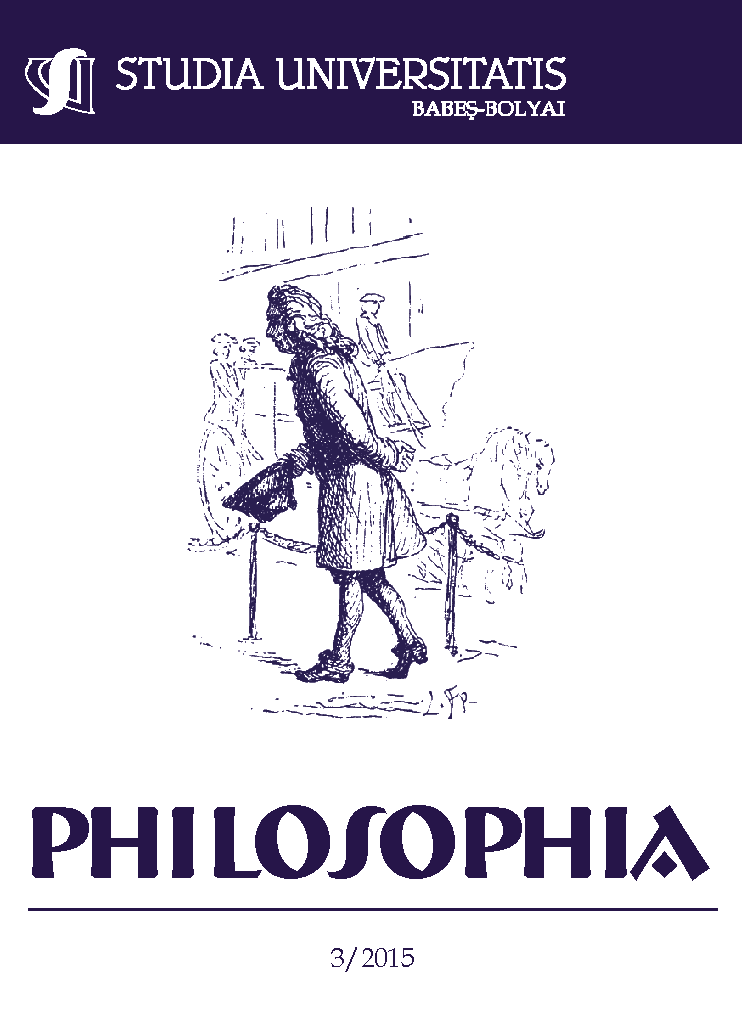THE REGIME OF NETWORK-COMUNICATION AND THE PROBLEM OF EXPRESSION
Keywords:
communication, Deleuze, delirium, expression, network.Abstract
The major debate within A.I. theory at the end of the 20th century, on whether or not developing a computer with self-consciousness was feasible, was interjected by the philosopher John Searle, who aimed to abolish the idea entirely. His attack, making the case from a typical Cartesian perspective that aims to maintain a separated realm of subjective intentionality, falls however short, as he himself already accepts the underlying communicational paradigm of the information age, which renders obsolete his separation between an intentional subject and his outer linguistic expressions. This debate itself reveals the paradigm shift within 20th century communication theory, in which the gradual destabilization of unitary human subjectivity gives way to the network paradigm of communication, in which the intentional transfer of information is replaced by algorithmic rules of network relations, and the power-structure of social relations. In the following paper I will attempt to trace this shift and its potential breaking points towards a new paradigm, using Deleuzian theory to analyse the current state of communication.References
Agamben, Giorgio. The time that remains. A commentary on the Letter to the Romans. Trans. Dailey, Patricia. Stanford University Press. Stanford. 2005.
Austin, J.L. Philosophical Papers. Oxford University Press. London. 1970.
Codoban, Aurel. Imperiul Comunicării. Corp, Imagine și Relaționare. Idea Design&Print. Cluj-Napoca. 2011.
Deleuze, Gilles. Difference and Repetition. Trans. Patton, Paul. Columbia University Press. New York. 1994.
Deleuze, Gilles; Guattari, Felix. A Thousand Plateaus. Capitalism and schizophrenia 2. tras. Massumi, Brian. University of Minnesota Press. Minneapolis. 1987.
Deleuze, Gilles; Guattari, Felix. AntiOedipus. Capitalism and Schizophrenia I. Trans. Hurley, Robert; Seem, Mark and Lane, Helen R.. University of Minnesota Press. Minneapolis. 2000.
Hayes, S.C.; Barnes-Holmes, D.; Roche, B. (Eds.). Relational Frame Theory: A Post-Skinnerian account of human language and cognition. Plenum Press. New York. 2001.
James, William. Writings 1878-1899. Literary Classics of the United States. New York. 1992.
Lacan, Jacques. The Seminar. Book II. The Ego in Freud's Theory and in the Technique of Psychoanalysis, 1954-55. Trans. Sylvana Tomaselli. Cambridge University Press. Cambridge. 1988.
Searle John. Minds, Brains and Science. Harvard University Press. Cambridge, Massachusetts. 1984.
Spinoza, Baruch. Completed Works. Hackett Publishing Company. Indianapolis. 2002.
Wittgenstein, Ludwig. Philosophical Investigations. translated by Anscombe, G.E.M. Basil Blackwell. Oxford. 1986.
Downloads
Published
How to Cite
Issue
Section
License
Copyright (c) 2015 Studia Universitatis Babeș-Bolyai Philosophia

This work is licensed under a Creative Commons Attribution-NonCommercial-NoDerivatives 4.0 International License.





